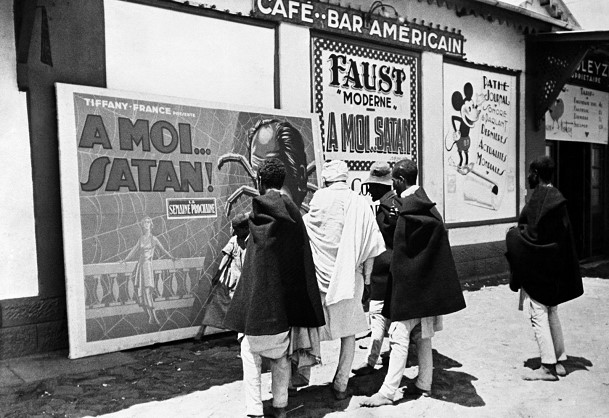Faust in Modern Ethiopia

In 1974, Haile Selassie, the absolute monarch was told that he had to abdicate; he was then led into a Volkswagen car out of his old palace. The monarch accepted his fate and was noted to have said, “If it is God’s will…” Like all the emperors of past Ethiopia, he was not only a ruler but head of the Ethiopian Orthodox Church. His subjects in the rural areas, small towns in Ethiopia, particularly in the North considered him a religious ruler. What then explains his alleged bargain with the devil, Korit?
Rumor had it that Korit resided in a volcanic lake located close to Debre Zeit, now Bishoftu. The rumor alleged that the emperor often made a trip to this infamous place and made human sacrifices of small children; the particular victims were reputedly children with connected eyebrows. Was this a satire by the elite, who were exposed to cinema and travel abroad, brought up and educated by the ruler? Or was it something in the culture of old Ethiopia, where Zars (spirits) had their presence together with the innumerable saints? It is probably the former.
Is it valid to ask? Which generation of educated Ethiopians were the authors and propagators of this satire? First as a regent, and later as an emperor; Haile Selassie had presided over the kingdom for several decades. In the picture above, a crowd is staring curiously at a movie billboard, in Addis Ababa. The year was 1935 and it was momentous; for Italian Fascism was either in the city or far in the north of the country. In the picture are a child, a priest and what appears to be common folk. Bare feet and some donning woolen ponchos, they don’t appear to be moviegoers. Who then?
The emperor had followed a policy of modern education, which was started by Emperor Menelik II (on a small scale.) Considering himself as a progressive, Haile Selassie had built many schools in Addis Ababa and several other towns. Among them, some were sent to Europe for further studies. When they came back to Ethiopia, however, many were impatient for change and frustrated. Is it probable that this elite was possibly influenced by the novels, plays, movies from Europe, among which is the myth of Faust? There is no evidence.
It is safe to speculate, however, they did; the satire then was disseminated to the next generation of student radicals and disgruntled army and civil servants. This generation hasn’t left much of its experience in the form of diaries, novels, or books. It was decimated by the Fascist leader Graziani. The satire however endured and was widely broadcasted by the generation that followed them. The alleged collusion of the ruler with the Korit stopped being a satire and made many Ethiopian women anxious about the fate of their children.
The irony is that the post-Italian invasion student radicals later fell into the trappings of foreign ideologies, or politics of imitation, which brought havoc to the nation. They wanted to re-engineer the society and stroke a bargain with radical communist ideology, which made the country succumb to uninterrupted civil wars, famine, and a complete socio-economic stagnation. The tendency to collude with any political evil in order to capture absolute power is still vibrant and strong in Ethiopia, and present-day Eritrea. This generation, unlike the victims of Graziani, brought its decimation largely by its own hands. “Every notable historical era will have its own Faust,” wrote Kierkegaard. Ethiopia’s, however, appears to remain everlasting.


![[AIM] Asmarino Independent Media](/images/logo/ailogo.png)
